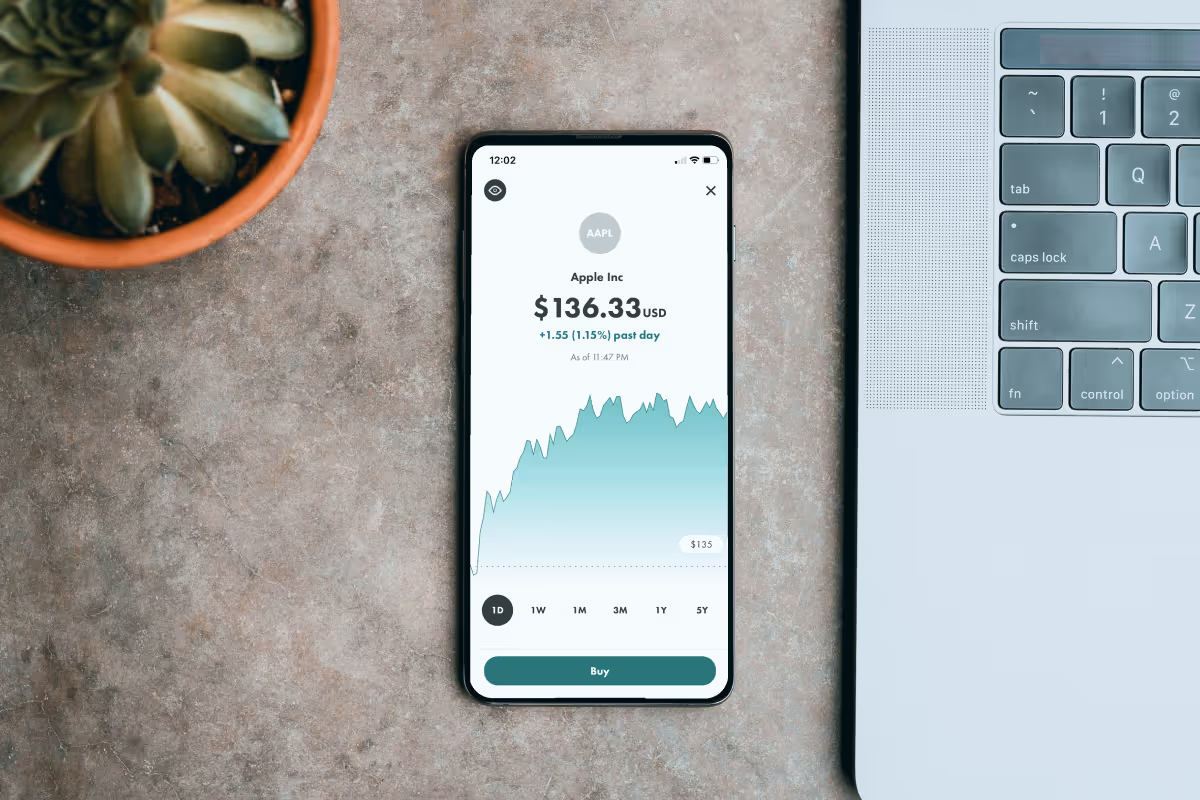As startups seek to ramp up software development processes, founders chose outsourcing as a viable alternative to bridge the IT talent gap. According to Statista, global spending for the outsourcing market is projected to reach $1,389 billion in 2023, a 33.56% growth over 5 years, indicating the demand for software development vendors. On Clutch, more than 26,000 software development companies are offering their services.
Founders seeking immediate IT expertise are burdened with choosing the right software development partner.
- What questions to ask to shortlist the best software development company?
- How do you avoid non-performing vendors?
- Do you even need a software development partner at all?
In this article, I’ll answer all such questions and help you overcome the challenges when choosing a software development company.

Why Do You Need a Software Development Company? Or Don’t
Some startups might not need to outsource their software development needs, while others need such services down the road. However, these are signs that your business needs a software development partner right now.

- You lack in-house expertise, and not all tech founders or CTOs are professionally trained coders. Even if you do, your time is better spent on other business functions, such as marketing, HR, and branding strategies.
- Local talent shortage. To hire new IT recruits, you must compete with more established enterprises. Moreover, startups and businesses in certain countries face a severe IT talent crunch, placing stakeholders at a disadvantage.
- Time-to-market. Hiring, training, and managing software developers takes significant time. It might delay your product release timeline if you can’t afford the time to do so. Likewise, established businesses might need a cost-efficient alternative to conventional recruitment.
- You’re short on budget. Many startups and businesses may not have the budget to secure top talents. Outsourcing across geographical boundaries is a viable alternative.
- Unique requirements. Some apps require a seasoned team's combined experience, business alignment, and skills. You’ll benefit from seeking out software companies with such capabilities in place.
While partnering with software development companies is mainly beneficial, there are moments when you’ll do well on your own.
- You have an in-house IT team. Unless you plan to introduce or expand your digital products, you may not need to search for a software development vendor soon.
- Limited IT requirements. Some startups and businesses can manage their IT needs with off-the-shelf software.
How to Choose a Software Development Company for Your Business: 9 Steps
No one-size-fits-all solution exists when choosing an IT software development company, as every business is inherently unique and has different IT requirements. For example, let’s compare how established businesses and a Series A startup would approach software development outsourcing differently.
Large enterprises and stable businesses may have a larger to work around with. This allows them to choose from a wider pool of software development firms. They are also more likely to work with reputable software agencies and have a higher tolerance for longer delivery timelines.
Meanwhile, startups prefer software development partners experienced in agile development and responding to fast-changing business requirements. As startups are tight on budget, they tend to collaborate with IT partners with proven track records of working with similar startups.
These steps will help you choose the best software development company for startups.

Step 1: Define your project requirements
Outline basic ideas, diagrams, or milestones you wish to accomplish within a specific timeline. Then, describe how they align with your business objectives. Doing so helps you identify software companies aligning with your business goals and technical needs.
At Uptech, we have faced two scenarios of client collaboration.
In the first one, a client has a distinct vision of the product and a list of requirements all figured out on paper. In this case, we usually follow a sequence of steps:
- discuss the details with the client;
- create user flow;
- make features breakdown;
- define weak points on the user flow which should be validated;
- modify the initial SRS to start working with.
- Test the user flow, and validate the features.
In the second scenario, all that a client brings to the table is the idea of a product. In such cases, we try to take it slow and move by iterations. At the outset, we brainstorm and gather as much information as possible. Then we convert this data into the specified requirements for two sprints ahead. After that, we move on to aligning new requirements by figuring out current tasks and plan for the next sprints.
To learn more about the project requirements, check our detailed guide. We explain why both functional and non-functional requirement and why both are important.
Step 2: Search for software development companies
Use Google or other search engines to search for potential software development partners. Alternatively, visit Clutch to browse from thousands of rated software developers. Compare the hourly rate, technologies, specialization, location, and other key criteria.
Here’s a detailed guide where we describe how to hire developers for startups. Check it out! You’ll find lots of handy tips.
Step 3: Evaluate skills, specialization, and experience
Each software development firm brings a different set of expertise to the table. Do you need Java developers, machine learning engineers, or vendors experienced in HIPAA-compliant development? Can you work with moderately-experienced developers or companies with decades-long proven track records?
At Uptech we provide end-to-end mobile and web development services. Our developers are using the follwing tech stack:
- Kotlin;
- Coroutines/RxJava;
- Dagger;
- Retrofit;
- Room;
- JUnit;
- Clean Architecture
- Swift;
- RxSwift;
- MVVM/Redux;
- XCTest;
- SnapshotTesting.
For more detailed picture of our services, technologies and specialisations – check out our service page.
Step 4: Ask about their development workflow
For startups, it’s best to work with software developers who practice Agile or Scrum in their workflow. This allows them to keep abreast of the rapid changes that startups experience. Also, determine if the developers consult users when validating ideas instead of relying on the former’s assumptions. This is crucial to ensure that your software is solving real problems.
We practice Agile development approach, so here's how we make a full-fledged product out of your idea (in most scenarios).
- Discovery: This is when the research holds, estimates & timelines are set, and the prototype is built.
- Design: This is when the prototype takes shape in UX/UI design sketches.
- Development: This is when the product is born. Yes, you can use and touch your app now.
- Testing & Improvements: This is when we make sure that your product works the way it has to work.
- Soft launch: This is when your product meets its first users. Of course, they share their feedback, and, of course, we take it into account.
- Launch: This is when we all drink champagne. Yay! And get ready for launching the next app versions.
Step 5: Conduct background checks
Read testimonials from past clients to learn if the software companies are as good as they claim. You can find clients' feedback in Clutch or visit tech forums to seek such information. Or listen to how clients feel when working with Uptech.
Eatable’s experience with Uptech
Step 6: Establish communication channels
Find out if the software partner has an efficient communication framework. How frequently do they provide a progress report? Are they reachable via phone calls, or is communication limited to emails? More importantly, can they communicate well in your language? These questions are essential because miscommunication often results in delayed delivery.
At Uptech, we use:
- Slack for day-to-day operations;
- Jira for planning and task management;
- Zoom and Google Meet for video conferencing;
- Figma for design construction;
- Miro for real-time teamwork with a whiteboard;
- MightyCall for video calls, in case you are tired of Zoom or Meets.
Step 7: Gaugue collaboration dynamics
You will work with a software development company in the long run. Hence, it’s wise to ascertain if they’re good business partners. Do they demonstrate professionalism when spoken to? Are they operating with an organized team structure? These will influence smooth deliveries and professionalism.
Step 8: Ensure you’re protected
As you’ll be sharing ideas and confidential information with the contracted developer, find out if proper security measures are in place. For example, the developer should willingly sign an NDA or provide you with one. They might also have protectionary measures like encrypted storage to prevent sensitive information exposure.
Of course, at Uptech, we sign NDA with you to protect all the information.
We help design and develop ideas for early-stage startups and established companies for 7+ years. We offer all the necessary expertise to build solutions that meet business goals and users’ needs. Check out how our services can help your business grow.
Step 9: Discuss post-deployment support
Despite securing the best developers, ensuring your app is well-supported post-release is wise. The contract should include bug fixes, modifications, and feature updates to prevent teething issues from affecting customer experience.
.png)
How to Choose Software Development Company: Main Challenges
Even with the abovementioned steps, you may stumble into possible obstacles when choosing a software development vendor. These are common problems startups face.
Language and cultural fit
Working with developers who don’t share or understand your work culture is challenging. For example, some developers are less open to direct feedback, while others take customer feedback constructively. Likewise, it is hard to communicate effectively if the developer doesn’t speak fluently in your language.
Solution: Choose software developers who share similar culture and language with your team. For example, most companies choose to work with Ukrainian software development companies because of the overlapping similarities.
Cost
Not all software development companies will meet your allocated budget, particularly if you’re outsourcing to developers in high-salaried nations. That said, the cheapest option is seldom the best option, as the developer might produce questionable deliverables.
Solution: Work with developers in Eastern European countries as they offer affordable rates and quality deliverables.
Relevant experience
Matching expertise is more helpful when they are paired with relevant industry experience. For example, a fintech startup will substantially benefit from working with a software company that has built several financial apps.
Solution: Examine the software developer’s portfolio to ensure they have undertaken similar projects in your industry.
Timeliness
Startups operate with tight deadlines and have little tolerance for delays. Beware of software developers that don’t possess strategic project management, good communication, and appropriate skills, as they will likely cause a delay.
Solution: Evaluate the developer’s approach to project management and past testimonials to reduce risks of delay.
Where to Look For a Software Development Company?
These are several sources to turn to when searching for software development companies.

- Search engines. You’ll find numerous software companies by searching for relevant keywords on Google. Besides company webpages, you might also find a software developer with blogs like this.
- Referrals. Your peers might have partnered with software development companies, and they might share first-hand experience working with them.
- Forums. Reading discussions on tech forums might lead you to real-life experiences by other founders. You can ask questions to get unbiased information about a specific software company.
- Directories. Websites like Clutch curated a list of software development companies. It provides testimonials from clients who have worked with the software developers.
- Social media. Some software development firms engage their audience on LinkedIn, Facebook, Dribbble and other social media.
Signs a Software Development Company Is Not a Good Fit For You
Beware of tell-tale signs of software companies you may not want to consider. For example, they pride themselves on being the cheapest in the market. In such a scenario, question if the vendor is adept in building quality software or if there are hidden clauses that put you at a disadvantage.
Developers with amateur-looking websites might hint at understaffing or poor branding practices, which might reflect in the software they build for you. Also, avoid software vendors with negative or fake testimonials. Lack of integrity is the biggest warning sign telling you to avoid a particular developer.
What Is The Cost of Hiring a Software Development Company
Hiring cost differs and depends on several factors.
Project complexity
Software developers take person-hour into account when estimating project costs. The fee will be relatively affordable if you need software companies to work on simple productivity software for in-house applications. Meanwhile, a complex app with backend processing, a secure database, and graphic rendering will likely translate into hundreds of thousands of dollars.
Outsourcing destination
Hiring software developers in developed countries like US, UK, and Canada is more expensive than in Eastern European countries. For example, software developers in the US charge $100 per hour on average, while their Ukranian counterparts bill at a more affordable rate of $45 per hour.
Collaboration model
Depending on the outsourcing model, you pay different fees to build and release an app. For startups, the time and material model is the most cost-friendly. You pay only for resources and services rendered by the software vendor. As you scale your business, hiring a dedicated team provides more stability, but comes with a fixed budget commitment.
Why Choose Uptech as Your Software Development Company
Uptech is an international software development company with a broad range of portfolios in different niches. Our team comprises software developers with multidisciplinary skills and experience in various business niches: fintech, real estate, healthcare, eCommerce, and more. Over the years, we have worked closely with startups worldwide to produce secure, functional, and engaging apps.
These are some notable examples.
- Dollar Shave Club is an app that lets men shop for high-quality grooming products. Our team helps DSC revamp and modernize the app design.
- GOAT curates products across time and features more than 2 million listings. We improvised the customer journey on the app with better UX practices.
- Aspiration is a financial app for the environmentally conscious. We worked closely with the founder to turn ideas into reality.
- Nomad is an app that provides an effortless property buying and leasing experience. We helped the founder create a personalized solution for the Middle Eastern and European markets.

Conclusion
Working with a software development company is a smart way to balance cost, time-to-market, and talent access. Many startups have found success outsourcing their project needs to software development vendors. I’ve shown how to choose the right software development partner and the potential challenges.
Ultimately, expertise, experience, cost, and cultural fit are essential to ensure prompt and high-quality software deliverables.
Talk to us to explore working with a startup-preferred software development partner.
FAQs
How to choose a software development company?
Step 1: Define your project requirements
Step 2: Search for software development companies
Step 3: Evaluate skills, specialization, and experience
Step 4: Ask about their development workflow
Step 5: Conduct background checks
Step 6: Establish communication channels
Step 7. Gaugue collaboration dynamics
Step 8: Ensure you’re protected
Step 9: Discuss post-deployment support
Where to look for a software development company?
The best places to look for software development companies are: search engines, referrals, forums, directories, social media.
How much does it cost to hire a software development company?
The cost of hiring a software development company differs and depends on several factors: the project's complexity, outsourcing destination, and collaboration model.












































































.avif)























